Rio 2016: Clean Russian athletes should compete for their country - Bach
- Published
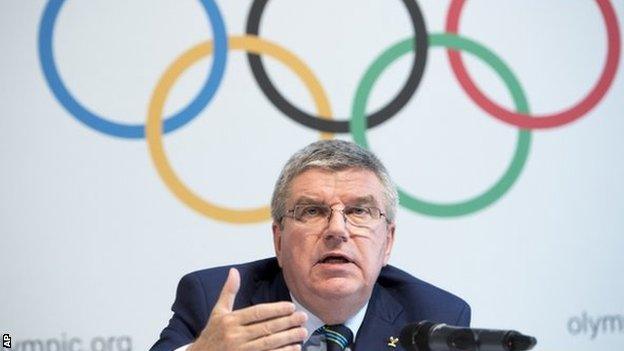
IOC president Thomas Bach indicated Russian athletes could still compete in Rio despite the IAAF ban
Russian track and field athletes will be able to compete at Rio 2016 - if they pass extra doping checks, says the International Olympic Committee.
But whether they are allowed to represent Russia or not is unclear.
IOC president Thomas Bach said clean Russian athletes should take part under their own flag.
While athletics' governing body the IAAF says, external it will accept appeals on an "exceptional basis", for Russians to participate as "neutral athletes".
On Friday, the IAAF upheld a ban on all Russian track and field athletes competing at this summer's Olympic Games, first imposed because of widespread state-sponsored doping and cover-up allegations.
On Tuesday, the IOC opened the door for some athletes to go to this summer's Olympic Games, if they could prove they were clean, with Bach saying: "If there are athletes qualified, then they will compete as members of the team of the Russian Olympic Committee."
However, the IAAF responded by insisting that if athletes met "strict criteria", they would compete "in an individual capacity as neutral athletes, not under any country's flag".
It added: "This decision has been unequivocally supported across sport and the IOC summit today unanimously agreed to fully respect the IAAF decision."
The president of the Russian Olympic Committee, Alexander Zhukov, confirmed Russia's clean athletes would appeal to the Court of Arbitration for Sport (Cas) against the "legally indefensible" ban on them competing.
He added that Russia "will not boycott the Olympics".
A statement from the Russian Ministry for Sport said its athletes would undergo at least three additional IAAF anti-doping tests before Rio, adding: "Our Olympians are ready to go over and above all the normal anti-doping tests to show their commitment to clean and fair sport."
However, sports minister Vitaly Mutko later said the IAAF had "done everything to destroy" athletics in his country.
The IOC met in Lausanne on Tuesday to agree a five-point anti-doping plan, saying the "presumption of innocence of athletes" from Russian and Kenyan athletes was "being put seriously into question".
Both Kenya and Russia have been deemed non-compliant with anti-doping rules.
The IOC added the lack of trusted doping controls meant it wanted each sport's governing body to vet their athletes.
Both countries have now asked the IOC for further clarification on how their athletes can qualify for exemptions and compete at Rio.
Russia track federation general secretary Mikhail Butov praised the IOC's "compromise", but said it "needed to be explained".
Pole vaulter Yelena Isinbayeva, who had announced plans to legally challenge the ban on Russian athletes, said: "I have to admit that deep down there is hope. It hasn't died completely."
The 34-year-old double Olympic champion added: "The most pleasant thing for me personally is that all athletes who win their cases will compete under the Russian flag. That's a victory.
"I was desperate yesterday, but I'm very optimistic today. Now it means that the end of my career, I hope, will be in Rio."
Mahoah Esipisu, a spokesman for Kenya's President Uhuru Kenyatta, said: "We are one of the most tested nations. We are ready for the new requirement (of testing our athletes) because we support clean athletics."
At Tuesday's meeting, the IOC also said they would ask the World Anti-doping Agency (Wada) to convene an "extraordinary world conference on doping" in 2017.
- Attribution
- Published21 June 2016
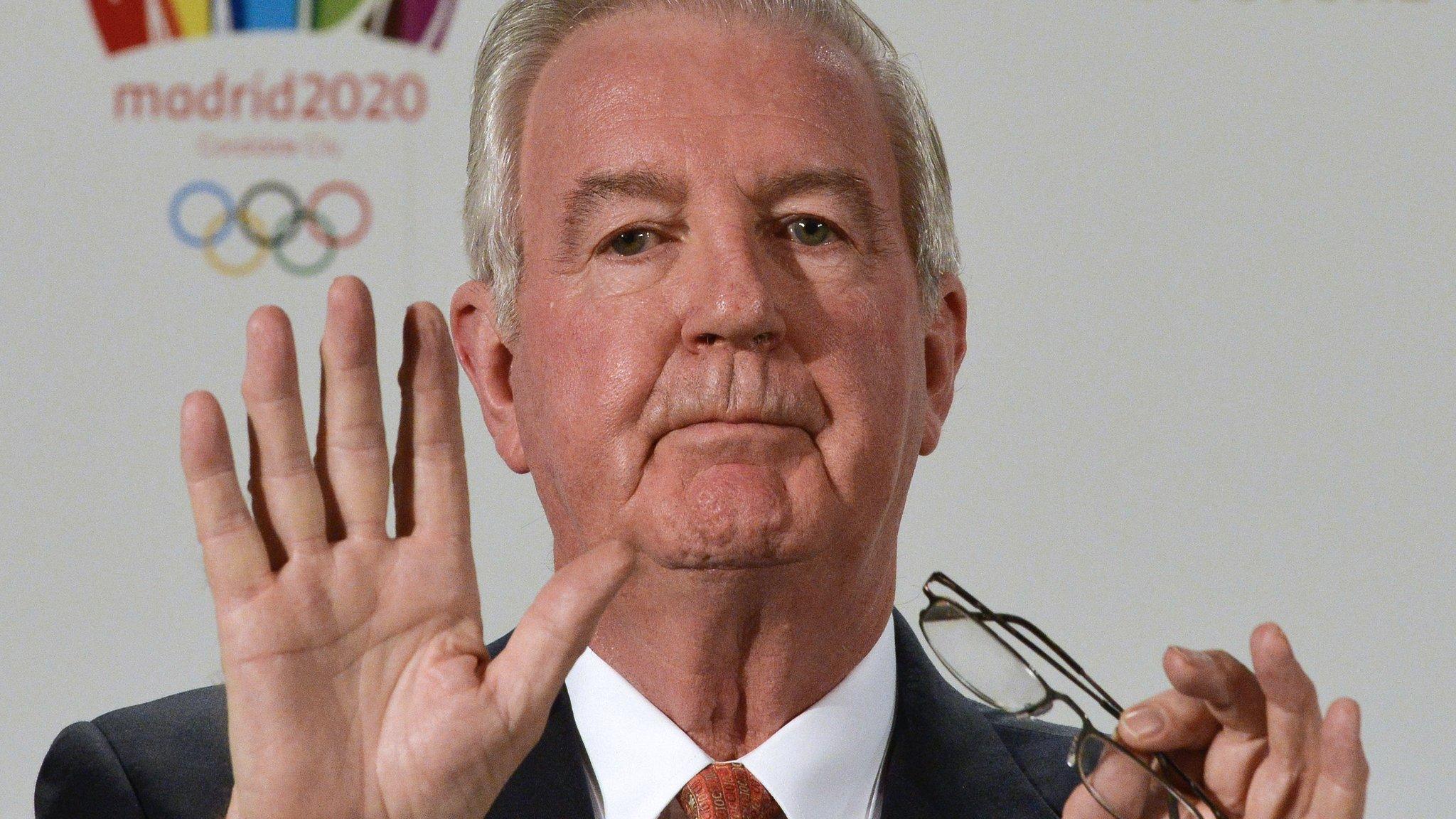
- Published18 June 2016
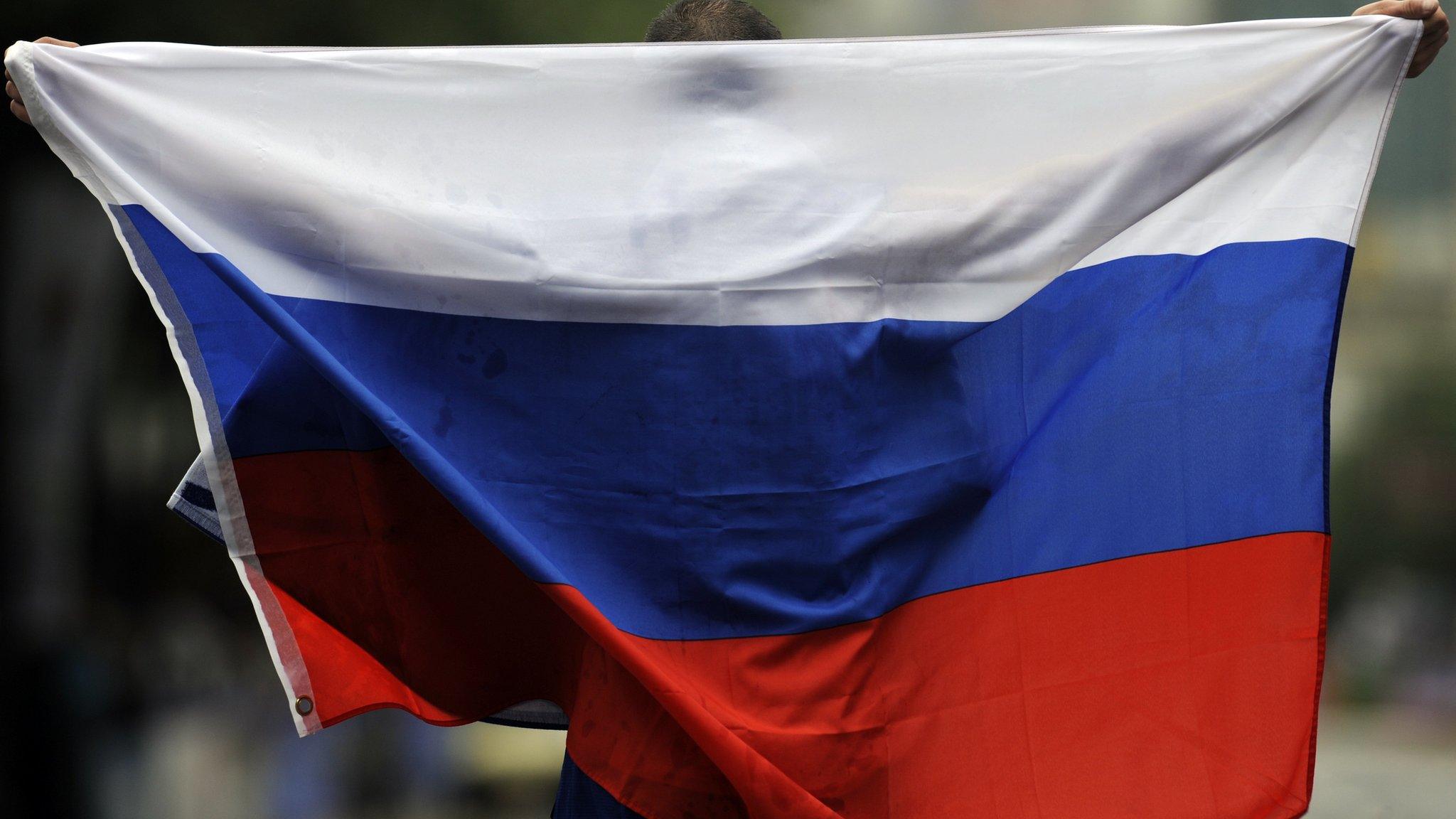
- Published19 June 2016
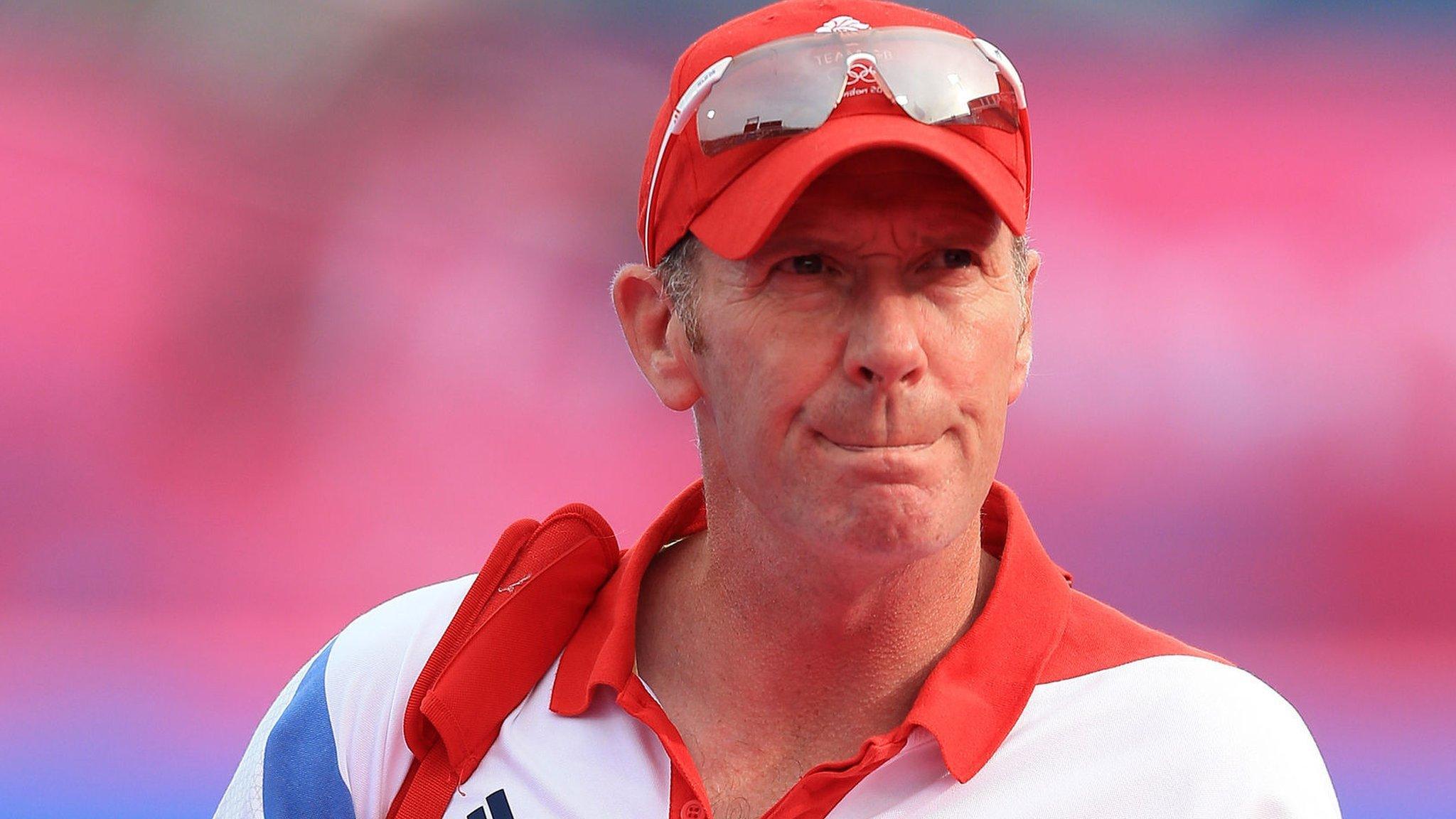
- Published19 July 2016
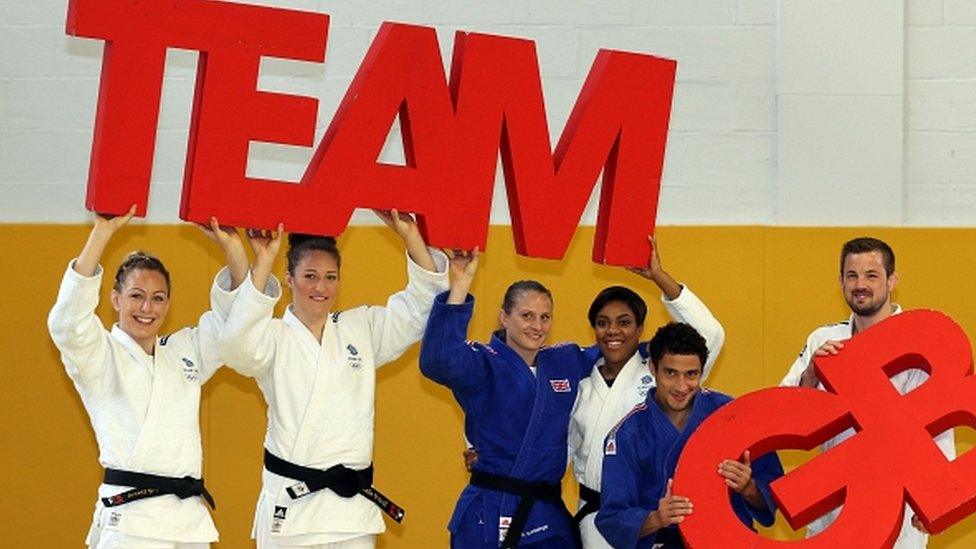
- Published13 May 2016

- Published19 July 2016
